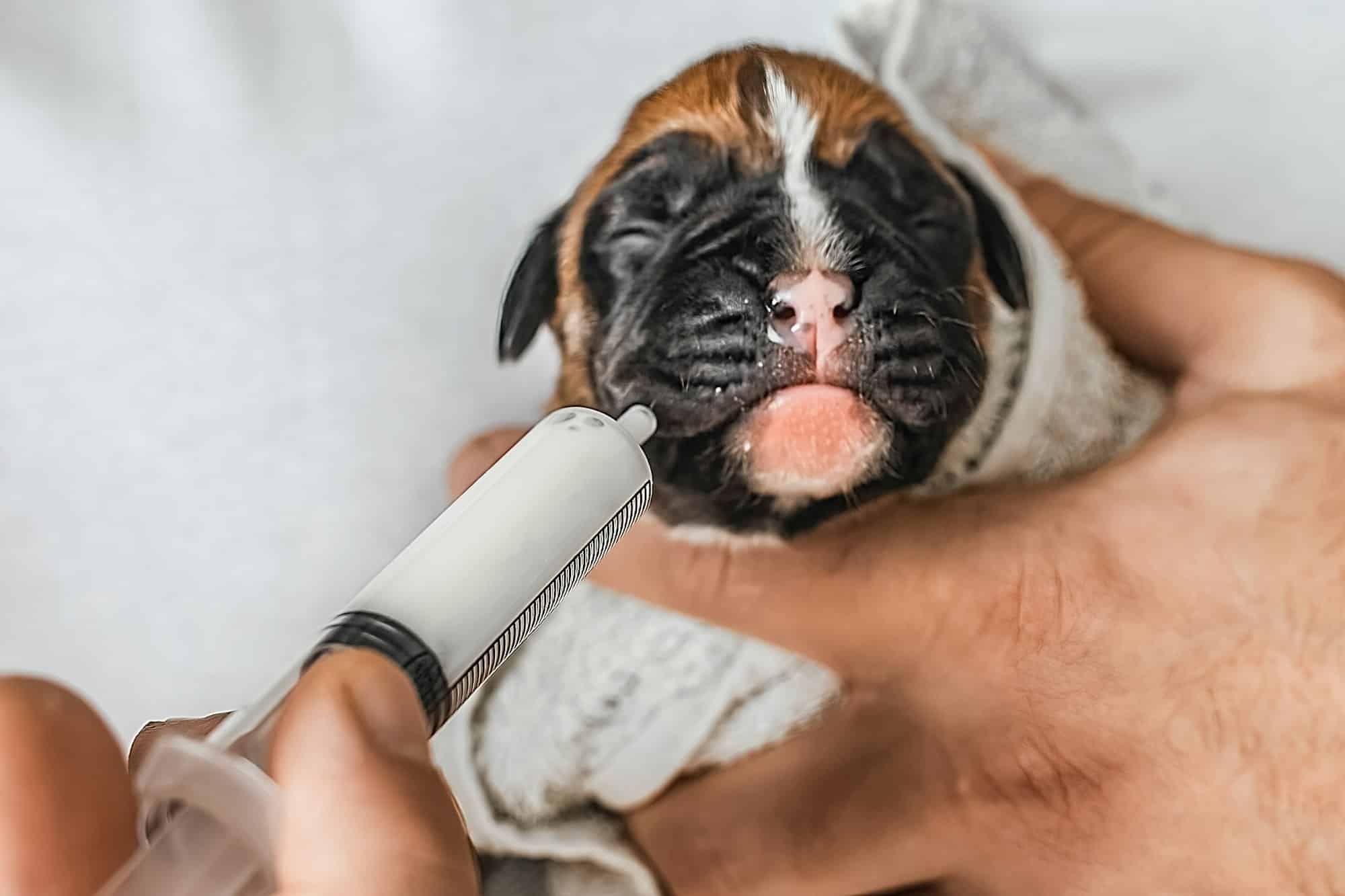What Are the Best Tips for Taking Care of a Puppy with Parvovirus?

You’ve brought home a new puppy from your local shelter or a breeder. It’s a thrilling moment filled with joy and excitement. But, before long, you notice that your adorable little furball is not acting as energetically as a puppy should. Upon consulting with your local vet, you learn that your pet has been diagnosed with parvovirus.
Suddenly, you’re filled with fear and anxiety. But don’t despair! Though parvovirus is a dangerous disease, with proper care and treatment, many puppies recover successfully. Let’s delve into some essential tips on how to take care of a puppy with parvovirus. Each section will provide you with a step-by-step guide, using the wikihow style, accompanied by relevant images.
A lire en complément : How to Properly Train Your Dog to Accept a New Baby in the Home?
1. Understand What Parvovirus Is
Your first instinct might be to panic when the vet informs you that your pup has parvovirus. After all, the disease has a reputation for being quite severe. But it’s crucial to remember that knowledge is power. When you understand what you’re dealing with, you’re better equipped to manage the situation effectively.
Dans le meme genre : What’s the Best Way to Introduce a New Cat to a Household with an Alpha Dog?
Canine parvovirus is a highly contagious virus that affects dogs, particularly puppies between six weeks and six months old. It spreads through direct contact with infected dogs or their feces. Parvovirus attacks the dog’s intestines, causing severe gastrointestinal issues. This often results in symptoms like vomiting, diarrhea, weight loss, and lack of appetite. Without proper treatment, the disease can be fatal.
2. Seek Immediate Veterinary Care
The moment you suspect your pet may be showing signs of illness, do not hesitate. Immediate action is crucial when combating parvovirus.
If your puppy displays any symptoms of parvovirus, such as lethargy, loss of appetite, or severe diarrhea, it’s essential to get them to the vet as soon as possible. Parvovirus is fast-acting and can quickly deteriorate a puppy’s health. The sooner your pet receives treatment, the higher their chances of survival.
Treatment usually involves hospitalization, where the vet can monitor your puppy closely. They’ll likely administer fluids to prevent dehydration, antibiotics to fight secondary infections, and medications to control vomiting and diarrhea. It’s also possible the vet will provide nutritional support to help your puppy maintain their strength during treatment.
3. Isolate Your Puppy
Parvovirus is highly contagious among dogs. If you have other pets at home, one of the first measures you should take is to isolate your sick puppy.
Keep your infected pet away from other dogs until they’ve fully recovered and the vet has given the all-clear. This will prevent the spread of the disease. Moreover, isolation allows your sick pet to rest and recuperate without any disturbance or stress. Make sure you have a comfortable, warm space for your puppy, where they can rest easily. Always wear gloves and wash your clothes after handling your sick pet to avoid further contamination.
4. Maintain a Strict Cleaning Regime
One of the reasons parvovirus is so contagious is because it’s resistant to many common household cleaners. To eradicate the virus, you’ll need to be diligent with a strict cleaning routine.
After your puppy has been diagnosed with parvovirus, deep-clean their living area with a bleach solution. This is one of the few substances known to kill the virus. Be sure to clean all toys, food and water bowls, bedding, and any other items your pet has been in contact with. Continue this cleaning routine throughout your puppy’s illness and for a few weeks after recovery to ensure no traces of the virus remain.
5. Provide Post-recovery Care
Post-recovery care is as important as immediate treatment. This is the time your pup will regain their strength and vitality.
Once your puppy has recovered from parvovirus, it’s crucial to continue providing them with extra care and attention. The illness can leave your puppy weak and susceptible to other infections. Your vet will likely recommend a special diet to help your pet regain their strength. Regular check-ups will also be necessary to ensure your puppy is recovering well.
Remember, parvovirus can be prevented through vaccination. Make sure all your pets are vaccinated on time to protect them from this dangerous disease. It’s also essential that you keep your puppy away from unvaccinated dogs and public spaces until they’ve completed their full series of vaccinations.
In the face of a parvovirus diagnosis, it’s natural to feel overwhelmed. However, with the right knowledge, immediate action, and dedicated care, your puppy can overcome this illness and bounce back to their playful, energetic self.
6. Devote Time to Emotional Support
Given the severity of parvovirus, your puppy will require more than just physical care. Emotional support plays a significant role in the recovery process.
Having parvovirus can be an incredibly stressful experience for your puppy. They might feel confused, scared, or isolated due to the disease and the treatment process. Your role as a pet owner extends beyond providing physical care; it also involves lending emotional support.
Consistent comforting can help alleviate your puppy’s stress and promote a more positive mindset, which can be beneficial for recovery. Talk to them in a soft, soothing voice, and spend time sitting near them so they don’t feel alone. Remember, however, always to wear gloves and clean your clothes afterward to maintain a safe environment.
It’s also important to keep in mind that your puppy’s behavior might change during this time. They might seem less playful or show less interest in activities they usually enjoy. This is normal and part of the healing process. With time, patience, and plenty of love, your puppy will gradually return to their old self.
7. Importance of Early Vaccination
One of the best defenses against parvovirus is vaccination.
Parvovirus is a preventable disease. Vaccines can protect your puppy from getting parvovirus and help to stop the spread of the virus among the dog community. Therefore, ensuring that your puppy gets vaccinated at the appropriate age is crucial.
Typically, puppies receive their first parvovirus vaccination between six to eight weeks old. They then receive booster shots every three to four weeks until they are about four months old. Afterward, dogs usually need a booster once every three years.
Always consult with your vet about the best vaccination schedule for your puppy. Every dog is different, and factors such as breed, health condition, and lifestyle can impact the vaccine requirements.
Conclusion
Parvovirus is undoubtedly a frightening diagnosis for any pet owner. However, armed with the right knowledge and resources, it’s possible to navigate this challenging time effectively. Remember, acting quickly at the first sign of illness and following your vet’s instructions is key to your puppy’s recovery.
Cleaning and isolation procedures are indispensable to prevent the spread of the virus. Meanwhile, emotional support and post-recovery care help ensure the overall well-being of your puppy during and after the illness. And lastly, never underestimate the importance of early vaccination in preventing parvovirus, and ensure to keep your pet’s vaccines up-to-date.
Your love and dedication will be your puppy’s greatest ally in overcoming parvovirus. With proper care, your furball can bounce back and continue living a happy, healthy life.
